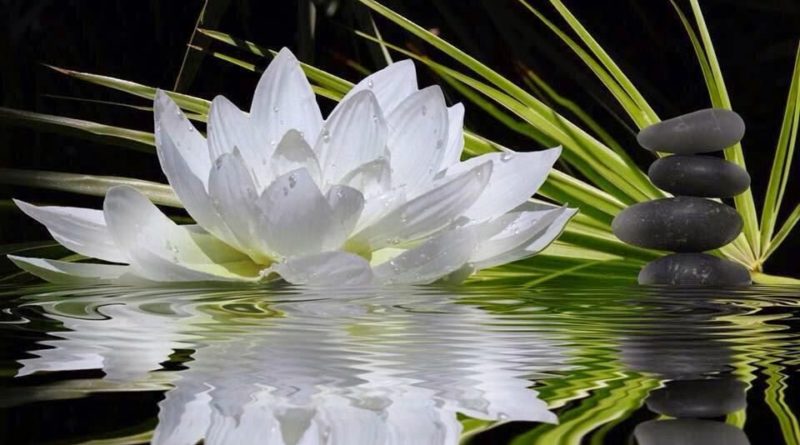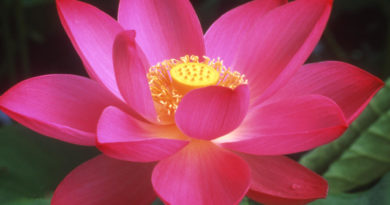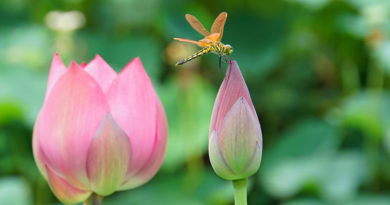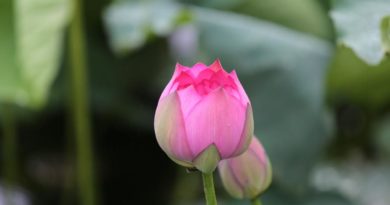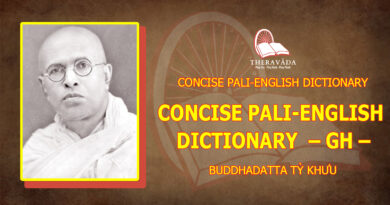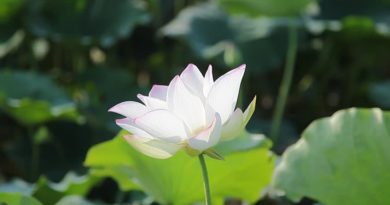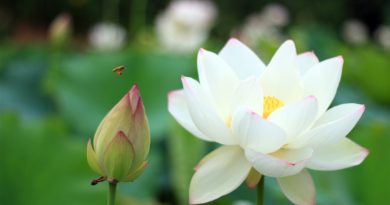DHAMMA RATANA – CHAPTER 3: THE FOUR CONDITIONS WHICH ARE DIFFICULT TO ATTAIN
MAIN CONTENT
DHAMMA RATANA – CHAPTER 3: THE FOUR CONDITIONS WHICH ARE DIFFICULT TO ATTAIN
All Buddhists and the listeners of dhamma are opportune to have the four conditions which are difficult to attain. There fore, you all are fortunate to be in the position to carry out good deeds. These four conditions are conducive for both mundane and supramudane benefits. People work hard to lead a whole some livelihood. On the other hand, they also give dana, observe sila and practise samatha and vipassana meditation as they are fortunate to have these four conditions.
The Buddha preached this dhamma related to the Erakapatta Naga (dragon), whereupon eighty four thousands worldlings were freed from the sufferings in apaya. ( * During the Kassapa Buddha’s time one day a monk travelling in a boat on the Ganges river happened to break a blade of grass growing in the river because of the speed of the boat. This was a breach of the vinaya rule. Consequently when he was about to die, he felt that a blade of grass wrapping round his neck. Thereupon he remembered that he had failed to report the incident. However at that moment not a single monk was around him to report to. He passed away unhappily. He was reborn as the Erakapatta naga with a body as huge as a small boat.)
These four conditions which are hard to attain are
1. To be a human being
2. To be alive
3. To listen to four Satipatthana dhamma which can close the door to apaya and help to become an ariya.
4. To be in the presence of the Buddha’s Sasana
To be complete with these four conditions is unexpectable. In the past existences you may have 1 or 2 or 3 of these conditions, however hardly all four. One may be born as a human being but he may not live long. Some die at the foetus stage, some die a few days or a month after they are born. Perhaps one lives long as a human being, however does not have a chance to listen to the noble dhamma if he is in a place devoid of dhamma. One is alive as a human being and fortunate to be in the presence of the Buddha’s Sasana, however he has erroneous views such as it is not necessary to listen to the dhamma and perform good deeds as there is no next existence; it is to live happily in this very life.
Moreover one may be alive as a human being and fortunate to be in the presence of the Buddha’s Sasana, however he is physically handicapped or mentally retarded that he could not hear or understand the noble dhamma. One may be born-deaf or dumb, who knows how many lives they have undergone in the cycle of birth. One may have the three conditions (being a human being, being alive and being in a condition to listen to the noble dhamma), however he is not in the presence of the Buddha’s Sasana. Many a time in our cycle of life, we may have missed the Buddha’s Sasana. Therefore these four condi tions are hard to attain.
In the present life when you are complete with these four conditions, if you strive ardently and practise vipassana meditation under the right guidance, you may become a sotapan and attain nibbana. A sotapan has to undergo a limited number of existences, that is he will attain nbbana in his seventh life. Even if he enjoyed worldly pleasure and forgot to practise dhamma during these existences, he will somehow or other, become remorseful in his last existence and become an arahant after practising vipassana meditation. There is no other life than the present one where one is opportune to practise dhamma and be a sotapan. For this reason, Venerable Mahasi Sayadaw has composed the following mottos to remind us to diligently practise vipassana meditation with firm faith.
Motto: Though it is very difficult to be a human being, now you are a human being
You are a human being in this present life because of good deeds, you have done in your past existences.
Motto: To be alive is very difficult
Now you are living, though it is difficult.
Some die in the mother’s womb, some die a few days or months after they were born. You all are quite aware of the fact that many of your age, many older or younger than you die. To be alive you have to take suitable food, to wear proper clothes, to protect yourself from the weather. You have to build suitable house, so that you may live a comfortable and longer life. To fulfil all these necessities of life is difficult and troublesome. Nevertheless you will not live long, if you fail to fulfil them.
Motto: To listen to dhammd is very difficult
You are now listening to the dhamma, though it is difficult
To have favourable circumstances to listen to dhamma is not an easy matter, however you all are now listening to the noble dhamma.
Motto: It is difficult to be in the presence of the Buddha’s Sasana
Yet you are now in the presence of the Buddha’s Sasana
It takes a long long time for a Buddha to enlighten after fulfilling his perfection during 4 incalculable worlds and a hundred thousand worlds, 8 incalculable worlds and a hundred thousand worlds, and 16 incalculable worlds and a hundred thousand worlds without sparing his body and life, then only a Buddha is enlightened. Moreover there are many more worlds where Buddha is not enlightened (sunna world) than the worlds where there is enlightenment of Buddha ( A- sunna world). That is the reason why it is hard to be in the presence of the Buddha’s Sasana. The listeners of dhamma are now in the presence of the Buddha’s Sasana, due to your meritorious deeds of the past existences.
Motto: To be complete with 4 conditions is very difficult You now have the 4 conditions though to have them is difficult.
By the virtue of your parami or good deeds you have performed in the past life, you all have the four conditions which are difficult to have
Motto: When the four conditions are received Ariya magga should be achieved.
You give dana, observe sila, practise samatha and vipassana meditation as you have the four conditions which are difficult to have. Thence you can be an ariya, if you practise the right method. Among dana, sila, samatha and vipassana meditation, the last one should be your choice, since it is the best to take you to nibbana in this very life. Just giving dana and observing sila will result in rebirth in the worlds of human and deva. Whereas samatha meditation will take you to the realm of Brahma. Therefore vipassana meditation is the only reliable one for the attainment of nibbana. If you practise the vipassana meditation, your most aspired goal which you wished for everytime you give dana and whenever you observe sila, will be achieved. With successful vipassana meditation, you will gain magga and phala. Thereafter through successive progress of insight you’ll finally attain nibbana.
The listeners of dhamma already discern the 4 foundations of mindfulness, namely, the contemplation of the body, the contemplation of feeling, the contemplation of consciousness and the contemplation of dhamma. Practising these 4 founda tions of mindfulness is the only way for the freedom from apaya and the attainment of nibbana. Accordingly you all are earnestly practising it and will certainly attain nibbana. Some may query whether dana, sila and samatha meditation should not be practised. Certainly they also must be practised, as they have reciprocal effects. Because of dana one can observe sila, because of sila one could develop concentration by samatha meditation, since samatha will not be successful if your sila is not perfect. Vipassana meditation, in turn depends upon mature concentration. Thus each one is supporting the other. When you offer alms-food, your mind is already filled with loving-kindness for the one to whom you offered. You offer alms-food so that the receiver may be well and happy.
Consequently with loving-kindness in mind, it is again easy to observe sila and not to infringe it. Since you know very well the owner will be very unhappy if his properties are stolen, you will never commit stealing. Similarly with other precepts such as killing, sexual misconduct, eto:. You, therefore, develop loving-kindness because of conscious mind, you are not going to make others unhappy and miserable. Thereupon your sila is perfect and as a reciprocal effect you develop concentration easily.
To say prayers, to tell beads are the samatha practice which foster the concentration. Thereupon it is no longer difficult for you to practise vipassana meditation. There is no vipassana wisdom without concentration. Noting whatever and whenever the sense objects manifest will strengthen your concentration which in turn will develop vipassana wisdom. There upon magga, phala and nibbana will be easily attained. “Dana alone, sila alone and samatha alone cannot save one from apaya” said the Lord. Although one may enjoy sensual pleasure in the Deva world, due to his dana and sila or one may be in the Brabma world byvirtue of samatha meditation, if he has not practised vipassana meditation, freedom from apaya is uncertain. That is the reason why vipassana meditation is the only practice which is dependable for the end of sufferings.
Difficult to be a human being
While residing at Zetavan monastery, Savatthi, the Exalted one came to the waiting congregation of monks and devotees. As there was no time to preach sermon, the Lord put some earth dust on his thumb nail and knowingly asked the monks, “Oh! my good sons, what would you say comparing the earth dust on my nail with the earth dust on the earth?” “Your most Rev, the amount of the earth dust on your nail is incomparable to that of the dust on the earth” respectfully replied the monks. “Yes, it is so. The number of people who will not return to ap&ya is comparable to the dust. on my nail. Those who will return to their abode, apaya, is comparable to the dust on the earth. That shows how difficult it is to be a human being. You, therefore, should not forget,” instructed the Enlightened one.
“Do not you forget” is the usual advice of the Lord when the time is short for a dhamma discourse. Many agree to this advice in general, however it does not mean not to forget to live a happy life as a human being, as a Deva, or as a Brahma. On the other hand the Buddha’s advice is to remember to practise insight meditation. That means not to forget to be mindful. When you see, hear, sit, walk, eat, etc:, To be mindful means to practise vipassana meditation, the only mindful means to practise vipassana meditation, is the only way which can free the living beings from apaya and sufferings of aggregates and to attain nibbana. The reason why the Exalted One had perfected his parami during the 4 incalculable worlds and a hundred thousand worlds, 8 incalculable worlds and a hundred thousand worlds and 16 incalculable worlds and a hundred thousand worlds with no regard for his body life and wealth is not for the people to enjoy worldly pleasure. However, it is to save them from apaya and to send them to nibbana, Buddha, therefore frequently reminded “forget not”, “Forget not”.
Motto: The dust on the nail is compared to the number of none apaya returner.
The dust on the earth is compared to the number of apaya returners.
Whilst a human being, not to forget is the reason.
“Not to forget” means to remember to practise the four foundations of mindfulness.
Difficult to be alive
Death of day-old and month-old babies, deaths of people at your age, older or younger than you are the vivid illustration of how difficult it is to be alive. To be alive one has to struggle for food, clothings and shelters. In other words you have to work incessantly, day in and day out for a sound economy to keep yourself alive. If you do not put such effort, you may not live long. Not only to be alive, but it is also important to lead a healthy wholesome life. To live longer is to perform more meritorious deeds and to gain wisdom. That is why the Lord Buddha has expounded the five factors essential to be alive.
1. To take suitable food and to behave properly. Unsuitable food and improper behaviour (not adaptive to weather, etc:) may shorten your life.
2. To know the extent of taking food. If you over-eat, you will not live long. For example, you are fond of sweet things. Your indulgence in sweet things will cause you disease such as diabetes
3. Digestion. It is important to take food which are suitable for your digestive system, especially for the older people. Indigestion also is a danger to your life.
4. Proper moral conduct. It is a known fact how one with no moral conduct endangers his life by stealing, life-taking. sexual misconduct, lying and drinking. A person with a healthy physique seems to live longer, nevertheless if he has no moral conduct and commits crimes, he will not live long. As you have seen and heard, nowadays, there are many vivid examples of how people of misconduct met with grotesque death.
5. Good companions. To live with good sons and daughters, agreeable wife and husband is a happiness leading to a longer life.
The aggregate of the body is composed of four corporealites namely
1. Kamma Rupa (Karmic Corporeality)
2. Cittaza Rupa (Mind-produced Corporeality)
3. Uduya Rupa (Weather produced Corporeality)
4. Ahaya Rupa (Food-produced Corporeality)
When these four corporealities are well-balanced, one will live longer. Because of bad children or disagreeable wife and husband, one is unhappy, thereupon the mind-produced corporealiy is no longer in a good condition. Then the Karmic corporeality and the food-produced corporeality are weakened.
If one of the 4 legs of a table is broken, the table is no longer useful. Similarly, if one of the corporealities is weakened, then the equilibrium among the corporealities is disturbed. Thus life is in danger. One will live longer when the 4 corporealities support each other. “These are the prime factors for longevity” remarked Buddha.
Motto: Suitable food, knowing the extent, good digestion
Good friends and moral conduct perfection
Are the five for a longer life
Difficult to listen to the noble dhamma
Though one is endowed with the three opportunities (being a human being, being alive, and in the presence of the Buddha’s sasana) one may not be able to listen to the noble dhamma due to physical or mental (unfavourable condition). Furthermore one may be a human being, alive and in good conditions to listen to the dhamma, however the Buddha’s sasana does not flourish. About 40 years ago, people were quite satisfied with dana and sila and were not in the habit of listening to the dhamma. The monks also preached only the benefits of dana and sila, however not on vipassana meditation. At that time, it was a great prestige to be the donors of pagodas and monasteries. People respected and had faith in them.
Moreover the monks themselves were contented just to follow the vinaya rules. Nowadays you all are opportune to listen to the noble dhamma because you are favoured with the 4 conditions which are hard to attain. Lord Buddha preached 21 times at 21 places in the Guru Province alone. Because of the favourable weather, sumptuous food, and sound economy people there were healthy and strong to listen to the dhamma. Present day Myanmar is also in such a favourable condition, that the devoees can practise vipassana meditation with mature concentration and well developed wisdom. Moreover they have no difficulties to listen to the dhamma.
In the presence of the Buddha’s Sasana one has a great chance to listen to the dhamma and practise vipasana meditation. However in the absence of sasana, it is difficult to listen to the noble dhamma and not only that there is not even the men tioning of the name of vipassana meditation. “Suppose the Buddha the moon, the Buddha the sun has not enlightened, there will be no sasana. Thereupon no mention of dhamma on vipassana meditation. According to your parami, you are fortunate to be in the presence of the Buddha’s sasana. Without the enlightenment of the Buddha, there is no sasana, therefore, it is difficult to be in the presence of the Buddha’s Sasana” said the Lord.
Difficult to Be in the Presence of the Buddha’s Sasana
It takes 4 incalculable worlds and a hundred thousand worlds, 8 incalculable worlds and a hundred thousand worlds and 16 incalculable worlds and a hundred thousand worlds for the enlightenment of Buddha. There are more worlds where the Buddha does not arisen than the number of worlds where there is enlightenment of Buddha. Therefore, it is difficult to have all the 4 opportune conditions. Now you have the 4 conditions which are difficult to have. That is the reason why you should determine to practise vipassana meditation. Beginning from this present life, if you practise, you will certainly be a sotapanna, free from apaya and subsequently will attain nibbana.
The Athakatha masters remarked that to be in the presence of the Buddha’s sasana is “Buddhuppadha navana Khana”. Buddha is Buddha + uppadha means enlightened + navama means 9 + Khana means opportune time. In other words it is the 9th time, a good chance where the Buddha has enlightened and the sasana flourishes. It is the time where the Buddha has arisen, thereupon one can become a sotpanna, sakadagan, anagan and arahant after passing the 8 bad times. You should be much delighted to meet this 9th time and practise vipassana meditation.
You might be in hell, in the animal world or in the peta world for numerous existences where you could not practise to attain magga, phala and nibbana. It, therefore, can be regarded as a bad time where there exists no three gems. To be born in a place devoid of dana, sila and vipassana meditation, or to be a Brahma in the Rupa-brahma Realm, where there is no nama, is also a bad time. Without the conscious mind it is a fact that one could not practise vipassana meditation and no gain of dhamma. Furthermore in many lives, you might have erroneous views, such as there is no next existence. This also is termed as a bad time.
In the absence of the Buddha’s Sasana, you could not listen to the noble dhamma and practise vipassana meditation; you could not even differentiate wholesome and unwholesome deeds; could not practise the four righteous practices. Therefore it is a bad time too. Undoubtedly you might have lived many exist ences in the absence of the Buddha’s Sasana. Eventhough, you are in the presence of the Buddha’s Sasana, to be satisfied with dana, sila and samatha meditation, but not vipassana meditation. may be considered as a bad time. The reason is that dana, sila and samatha meditation could not free one from the sufferings in apaya. Now you are in the 9th time, a good chance and if you practise ardently, you will attain nibbana, free from all sufferings.
Motto: Have passed the eight bad times
With the enlightenment of Buddha, you are in the ninth good time
Whilst it is opportune to be a sotapanna
Noble yogi must strive to be an ariya
Four Foundations of Mindfulness
If you practise the right method it is inevitable that you will attain nibbana. What are the right methods? It is, of course, the four foundations of mindfulness
1. Kayanupassana Satipatthana
To contemplate the body. To contemplate the movements of the body precisely, in the four postures; such as walking, standing, sitting and lying down. If your noting is objective and fixed on the present happening (i.e. any movements of the body) the dhamma or the nature of the movement will be vivid to you. According to one’s parami one could perceive the dhamma lucidly as soon as his mind dwells upon the present manifestation. Whenever and whatever arises and if you note presently, then we can say your contemplation is precise. If your mind is diffused or wanders instead of noting, your noting is not precise and the nature of the movements of the body will not be clearly seen; when you are mindful and note precisely then the nature of the movements will be vivid to you.
2. Vedananupassana Satipatthan
To contemplate the feeling. When you note mindfully the feelings such as itching, numbness, pain, pulling, pushing, etc the concentration will be strengthened and the dhamma will be apparent to you.
3. Cittanupassana Satipatthan
To contemplate the consciousness. Reflect whether you are happy or sorry, you are glad or angry. You will discover that your mind is changing. It is sad now, however it is glad in the next moment; it is angry but not in the next minute. You keep on noting these swift changes of your conscious mind.
4. Dhammanupssana Satipatthan
To contemplate the dhamma. Upon seeing or hearing, just note them as mere seeing or hearing. Do not follow the sound or let the sight influence you.
These 4 foundations of mindfulness are found and practised by the Buddha himself. He expounded and explained explicitly in such a way that people may be able to practise them without difficulties. If one practise objectively and sincerely, he can gain magga and phala within 7 days. By virtue of his parami, he can also be a sotapan free from sufferings in apaya in the subsequent life. Moreover he is undoubtedly free from the danger of being born in hell, animal world, and peta world. He will go through the cycle of existence with no fear and doubt.
You may have a desire to find out whether you yourself or the other one is really a sotapan. The easiest way is to watch whether he will confide instead of hiding the misdeeds (physically, verbally, mentally) he has committed. A sotapan never hides his misdeeds, but confide in a suitable person. This is one characteristic of a sotapan. There are many other means of judging a sotapan. A sotapan has only 7 existences to undergo and even if he forgets the dhamma and enjoys dana, sila and samatha during these existences, somehow or other, in his last existence, he will be remorseful and practise vipassana meditation, then attains nibbana. During these seven lives he enjoys only good births.
At one time, while residing at the Zetavan Monastery, Savatthi, the Exalted One put some dust on his thumb nail and compared it to the amount of sufferings a sotapan has to encounter and the dust on the earth compared to that of sufferings which have been already eliminated. The realization that, there is just seven existences to undergo will make him feel relieved and foster his concentration. Thus the Lord meant to say that sotapan is a noble ariya who can certainly attain nibbana.
After listening to this sermon on “The four conditions which are difficult to attain”, may you all be able to practise in accordance with the Buddha’s instruction. With diligent contemplation. may you all immediately realize your most aspired Nibbana, the end of all sufferings, by practising with ease.

